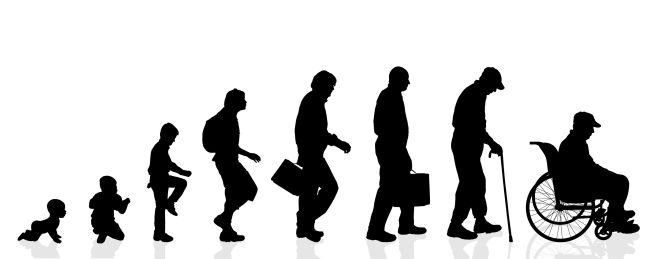Even well-off seniors want financial support from children
By Claire LeePublished : Aug. 8, 2016 - 16:31
South Korea’s wealthy elderly feel unhappy at not receiving money from their grown children, while those in financial difficulties feel sad about not being able to support their offspring, a study showed Monday.
The study, compiled by the Korean Society of Gerontological Social Welfare, surveyed 358 elderly who belong to the wealthiest 10 percent of the elderly population as well as 1,462 individuals with household income of 1 million won ($900) or less a month.
The study found those who were wealthy and did not need financial support still felt unhappy if they were not getting contributions from their children.
Meanwhile, elderly individuals with low income said their inability to financially support their grown children was one of the things that made them unhappy.
The study, compiled by the Korean Society of Gerontological Social Welfare, surveyed 358 elderly who belong to the wealthiest 10 percent of the elderly population as well as 1,462 individuals with household income of 1 million won ($900) or less a month.
The study found those who were wealthy and did not need financial support still felt unhappy if they were not getting contributions from their children.
Meanwhile, elderly individuals with low income said their inability to financially support their grown children was one of the things that made them unhappy.

Chun Mi-ae, a professor at Chongshin University who organized the research, said there could be a number of reasons why the wealthy seniors felt this way.
“One of the possible scenarios is that parents who don’t get any allowance from their children are more likely to have estranged relationships with their children,” Chun told The Korea Herald.
“They may not be spending a lot of time with them, or not speak to them very often. Regardless of one’s income, unfulfilling relationships with grown children may make them unhappy.”
Another possibility is that their grown children are not doing well financially.
“So regardless of their own income status, such parents may feel bad about their children who are financially struggling,” she said. “Also, some of them may feel that their children are being ungrateful, not showing appreciation for the financial support they were given while growing up.”
For the financially struggling parents, Chun said they may feel they were not fulfilling their duties as parents.
“Many Korean parents still feel it is their responsibility to finance the cost of their children’s education and weddings,” she said. “Inability to do so can make one feel guilty and unhappy.”
According to a report by the government-funded Korea Institute for Health and Social Affairs, 48 percent of Korea’s elderly were living in poverty as of 2013, which is defined as earning 50 percent or less of the overall median household income.
“It seems that senior Koreans’ relationships with their children are largely affected by both their own and their children’s financial situations,” Chun said. “The government should take that into account when creating policies and welfare programs for the elderly.”
By Claire Lee (dyc@heraldcorp.com)
“One of the possible scenarios is that parents who don’t get any allowance from their children are more likely to have estranged relationships with their children,” Chun told The Korea Herald.
“They may not be spending a lot of time with them, or not speak to them very often. Regardless of one’s income, unfulfilling relationships with grown children may make them unhappy.”
Another possibility is that their grown children are not doing well financially.
“So regardless of their own income status, such parents may feel bad about their children who are financially struggling,” she said. “Also, some of them may feel that their children are being ungrateful, not showing appreciation for the financial support they were given while growing up.”
For the financially struggling parents, Chun said they may feel they were not fulfilling their duties as parents.
“Many Korean parents still feel it is their responsibility to finance the cost of their children’s education and weddings,” she said. “Inability to do so can make one feel guilty and unhappy.”
According to a report by the government-funded Korea Institute for Health and Social Affairs, 48 percent of Korea’s elderly were living in poverty as of 2013, which is defined as earning 50 percent or less of the overall median household income.
“It seems that senior Koreans’ relationships with their children are largely affected by both their own and their children’s financial situations,” Chun said. “The government should take that into account when creating policies and welfare programs for the elderly.”
By Claire Lee (dyc@heraldcorp.com)









![[Graphic News] More Koreans say they plan long-distance trips this year](http://res.heraldm.com/phpwas/restmb_idxmake.php?idx=644&simg=/content/image/2024/04/17/20240417050828_0.gif&u=)
![[KH Explains] Hyundai's full hybrid edge to pay off amid slow transition to pure EVs](http://res.heraldm.com/phpwas/restmb_idxmake.php?idx=644&simg=/content/image/2024/04/18/20240418050645_0.jpg&u=20240419100350)






![[KH Explains] Hyundai's full hybrid edge to pay off amid slow transition to pure EVs](http://res.heraldm.com/phpwas/restmb_idxmake.php?idx=652&simg=/content/image/2024/04/18/20240418050645_0.jpg&u=20240419100350)

